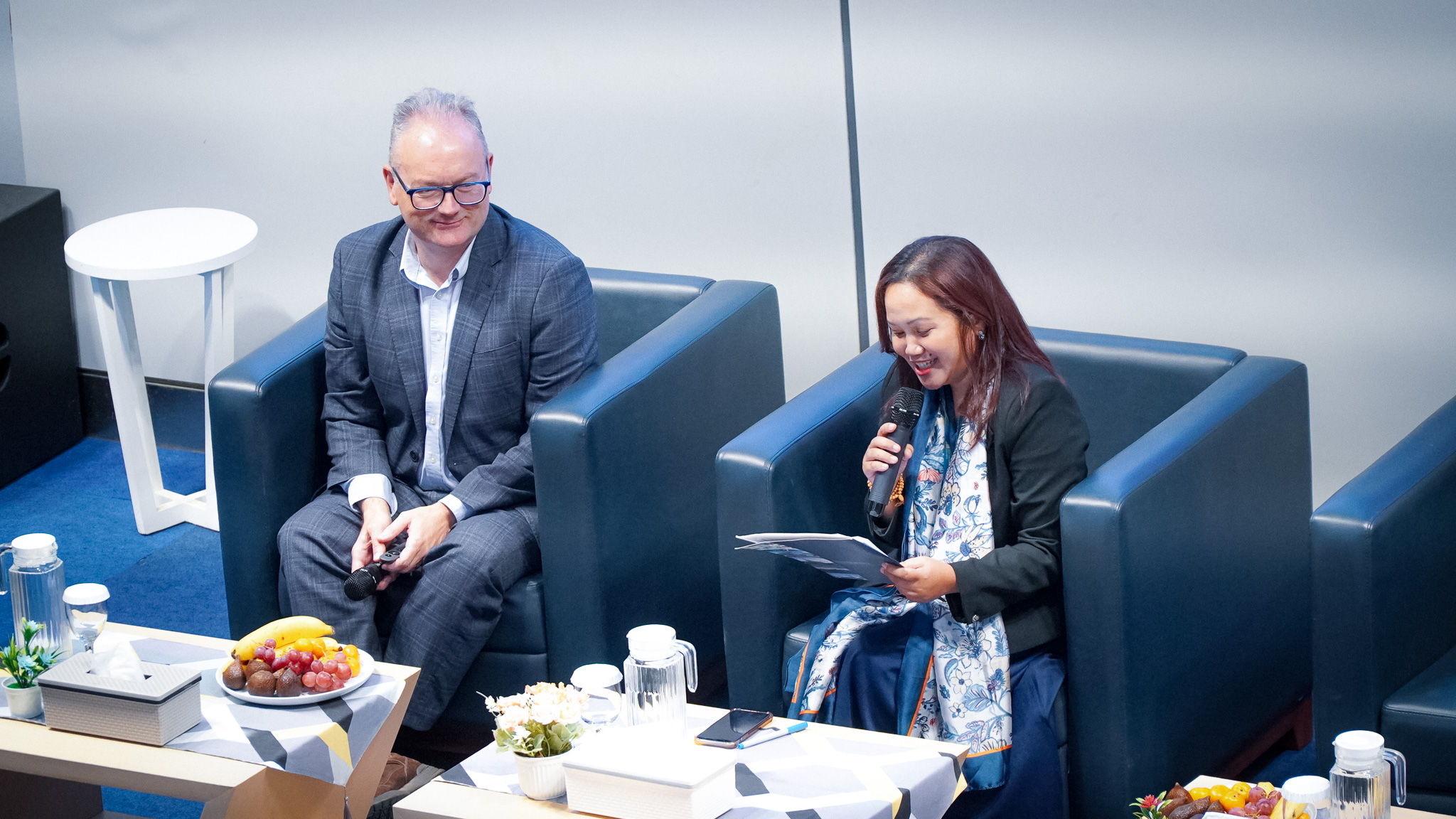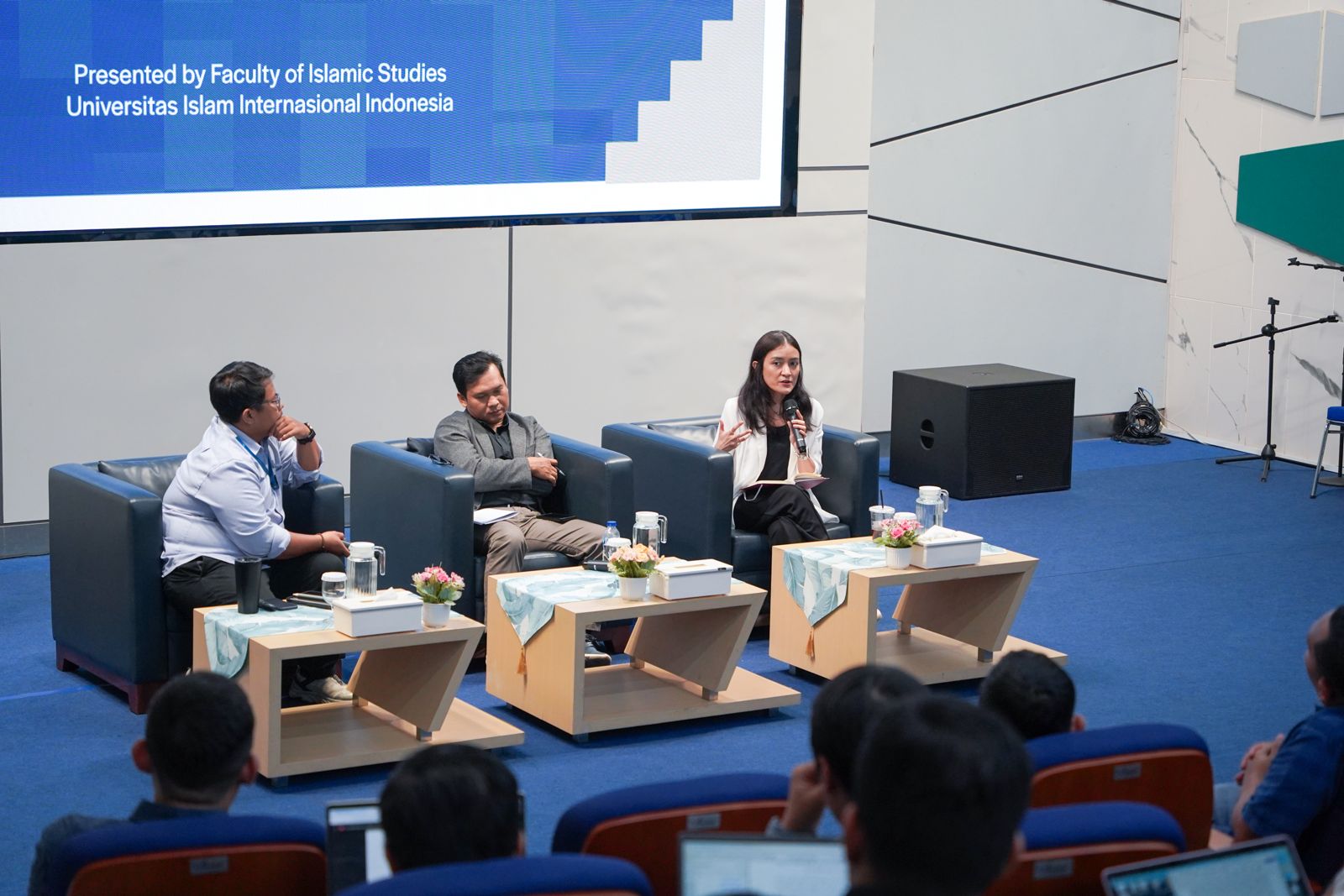Insights from UIII’s Faculty of Education 2nd Annual Conference
June 06, 2023Contributors: Maroof Ahmed, Achmad Jatnika | Editor: Supriyono
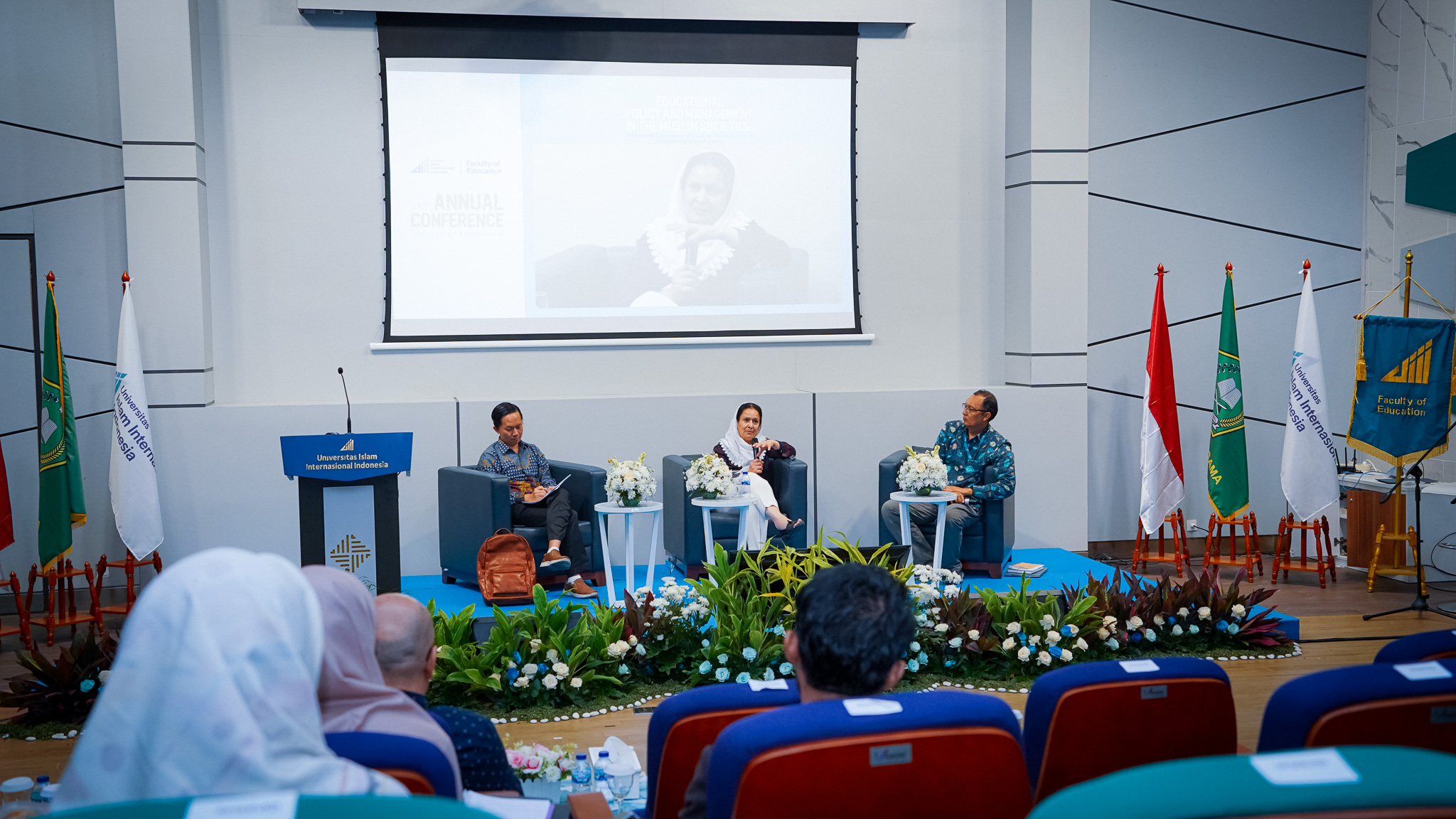
The Faculty of Education at the Universitas Islam Internasional Indonesia (UIII) successfully held its 2nd Annual Conference on May 30-31, 2023, with the theme “Educational Policy and Management in the Muslim Societies: Addressing Contemporary Issues on Administration in Education to Move Forward”.
The annual conference aims to provide a platform for scholars from around the world to present their research findings, exchange ideas and expand their networks. In addition to the invited keynote speakers, the conference also had panel sessions with the selected presenters on various subtopics under the grand theme.
This year’s conference featured three prominent keynote speakers, namely Dr. Saeeda Shah, a senior lecturer from the University of Leicester, UK; Dr. Agus Mutohar, a lecturer at the Universitas Islam Negeri (UIN) Walisongo Semarang, Indonesia; and Dr. Abdullah Sahin, Reader in Islamic Education at the Department of Education Studies, University of Warwick, UK.
Dr. Saeeda Shah’s keynote was themed “Educational Leadership and Islam: Impact of a Belief System on Conceptualizations and Practices.” She emphasized the role of Islamic school leaders in shaping the socio-religious dynamics within their schools and argued that leadership models for Islamic schools should be socially, culturally, and religiously relevant.
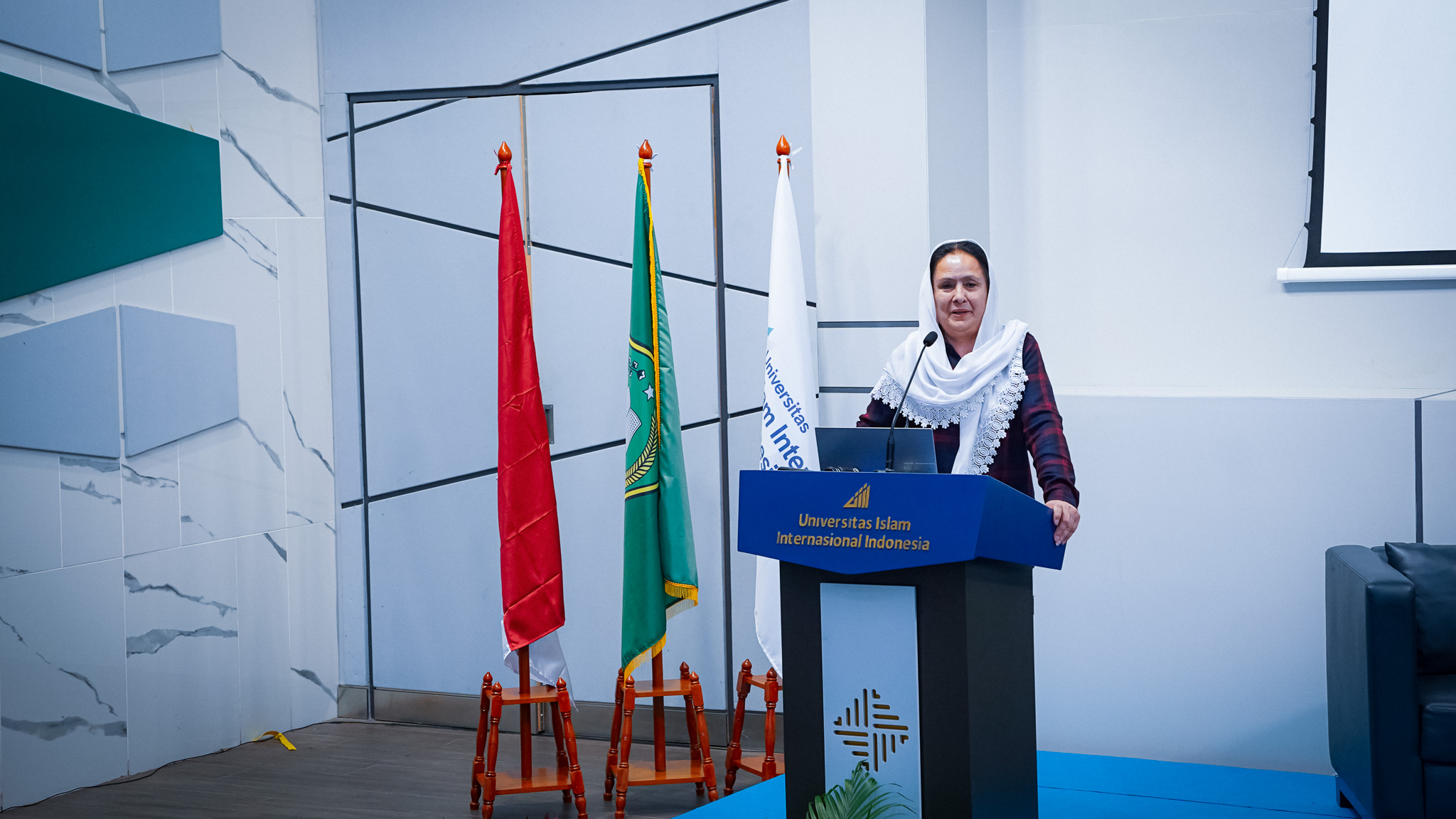
“In Islam, knowledge must be accompanied by action [amal]. Islamic leaders [should] encourage individuals to practice what they learn, as knowledge without action is considered incomplete,” Dr. Shah explained, highlighting that Islamic educational leadership is different from the Western-secular concept.
In this regard, Dr. Shah elaborated that the focus on the afterlife differentiates Islamic leadership from Western philosophies, which often prioritize worldly achievements and progress. Within Islamic leadership, the ultimate aim is to please God rather than seeking the approval of superiors or pursuing personal gains. Two crucial stages that underpin Islamic leadership are Iman (faith) and Ihsan (excellence).
She also emphasized on self-development and the pursuit of goodness and service to others in Islamic leadership. "Islamic leaders are accountable not only to their superiors but also to God, recognizing the importance of character and righteousness in leadership,” she pointed out.
Meanwhile, the second keynote speaker Dr. Agus Mutohar addressed the topic “Socially and Religiously Relevant Islamic School Leadership in Indonesia” which is part of his research findings that he conducted with his collogues, funded by the Australian government's Department of Foreign Affairs and Trade.
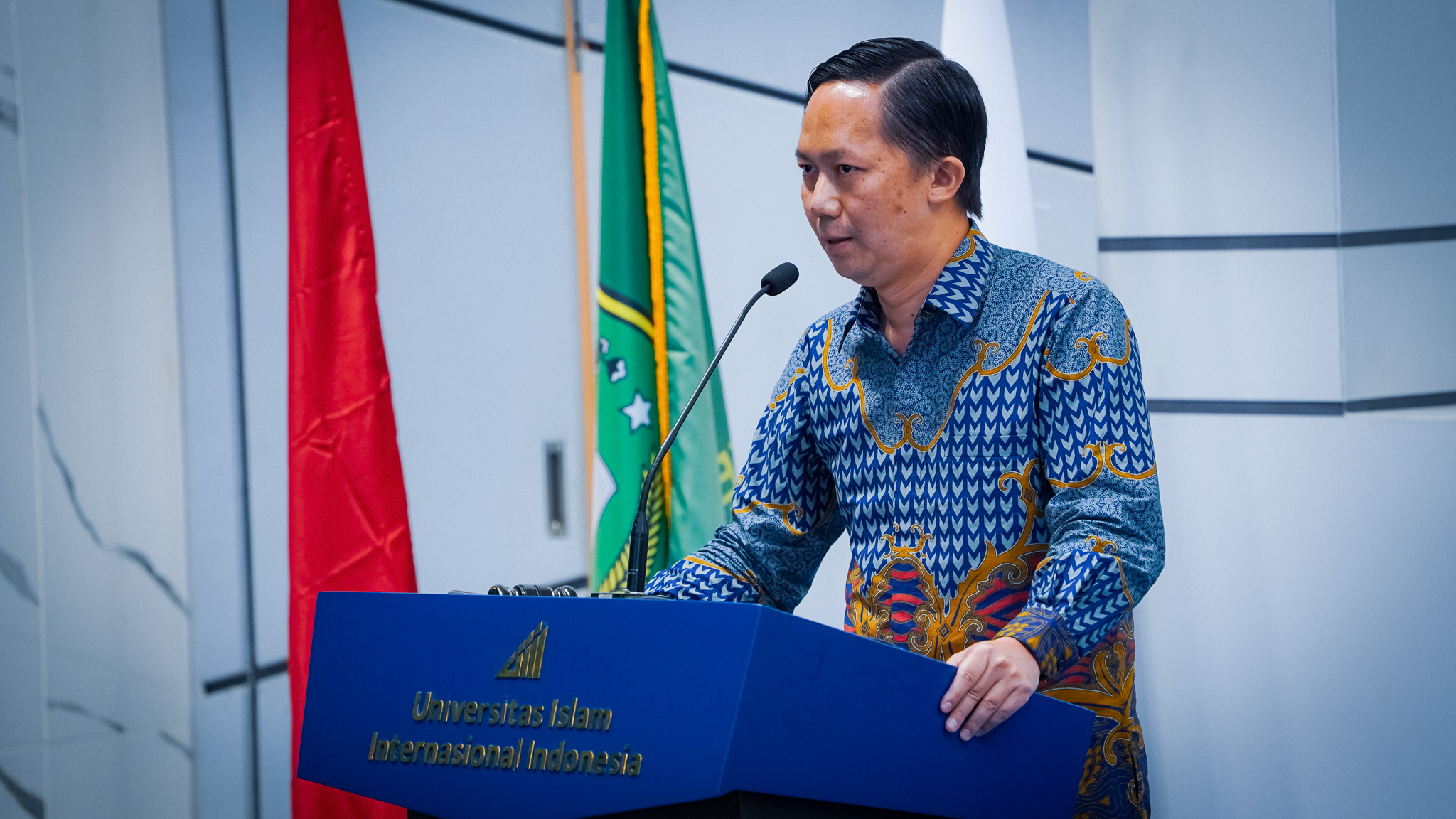
“Our study focuses on the ongoing contestation of Islamic schools' association with fundamentalism. We aim to explore how school leaders influence the socio-religious dynamics within their schools,” Dr. Mutohar explained, adding that the study employed a case study design in 20 private Islamic schools in Central Java.
Based on the findings, Dr. Mutohar and his team categorized Indonesian Islamic schools into three types: open/closed schools, inclusive/exclusive schools, and plural/unitary attentive schools.
In his explanation, open schools actively engage with the community, while closed schools try to limit outside influences. Meanwhile, Inclusive schools value diversity and engage with diverse communities, while exclusive schools shield students from differences. In the meantime, plural schools celebrate national activities and incorporate local stories and culture, while unitary schools focus on developing Muslim identities.
The findings emphasize that Islamic school leaders play a crucial role in shaping the socio-religious dynamics within their schools. They are influenced by personal ideologies and consciously curate school culture.
“Moving forward, it is important to develop socially, culturally, and religiously relevant leadership models for Islamic schools. School leaders should understand the political and pedagogical contexts, have critical self-awareness, and advocate for social groups within their schools,” Dr. Mutohar concluded.
Meanwhile, the third keynote speaker, Dr. Abdullah Sahin spoke on the topic of authoritarian educational leadership and modern Islamic higher learning institutions. He addressed the prevalence of authoritarian leadership within various Islamic contexts and emphasized the need to understand the root causes to work towards changing and resolving the problem.
“From my experience and observations in various Islamic contexts, it is evident that authoritarian leadership is a prevailing issue not only in education but also in politics, religious affairs, and other areas of life,” explained Dr. Sahin.
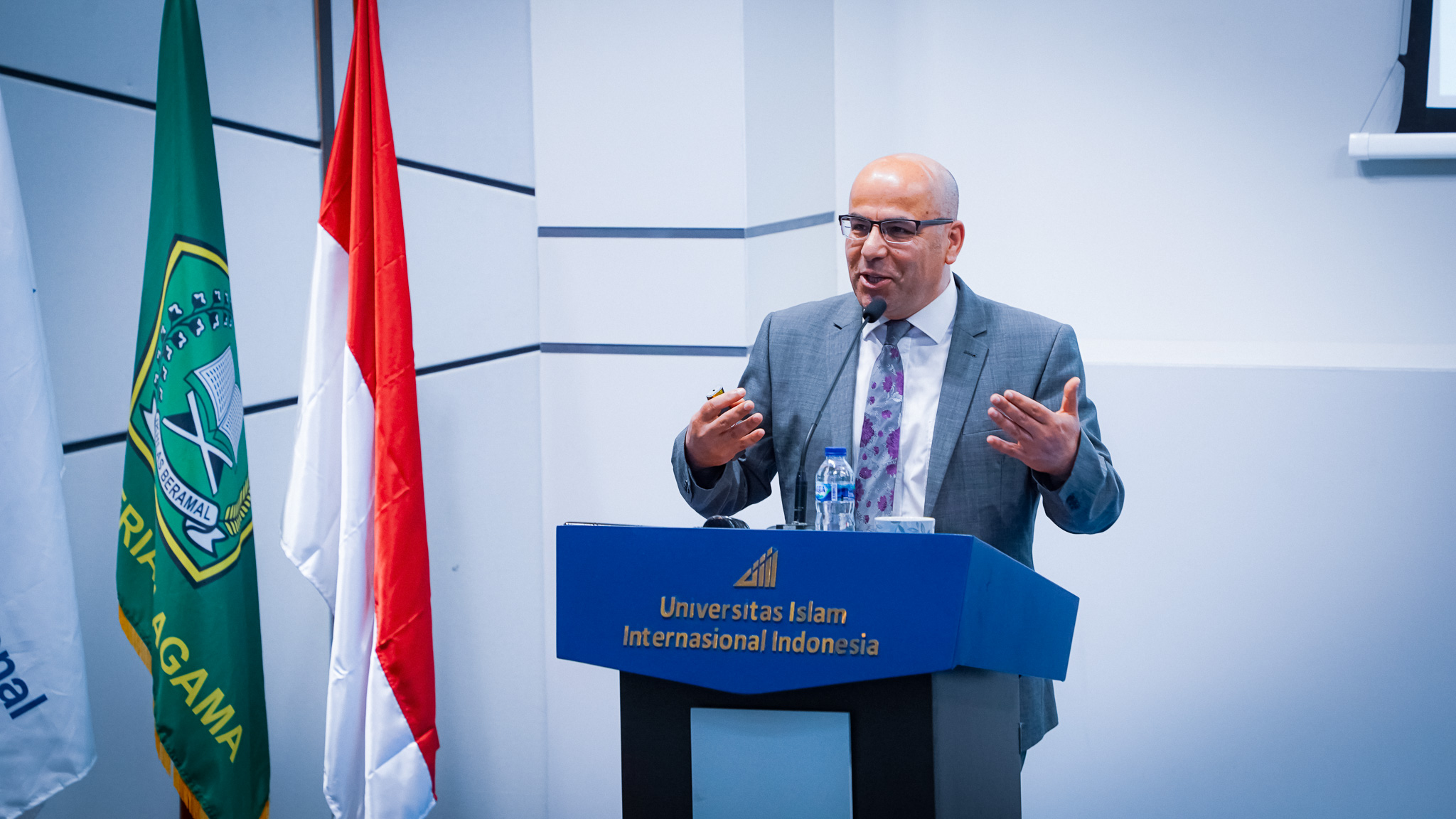
The particular conditions lead to a critical question that should be addressed: “Can Islamic leadership, with its charismatic, religious, and spiritual authority, encompass democratic features and reconcile with the need for civic democratic leadership in contemporary Muslim societies?”
In Southeast Asia, the concept of "adab," which refers to moral authority, plays a crucial role. It permeates educational leadership practices, encompassing charismatic, religious, spiritual, and even political dimensions. Hence, moral and religious values significantly shape the exercise of power within educational institutions.
“However, it is important to note that I am not making generalizations, as these observations are context-specific,” Dr. Sahin emphasized.
To address this issue, Dr. Sahin argued that there is a need to train faith leaders who can function as public intellectuals, engaging in public affairs and serving as checks and balances to political power. This requires rethinking educational leadership within an Islamic framework.
“One key concept that emerges is "tarbiyah," which encompasses the ideas of growth, development, nurture, care, guidance, and reform. Tarbiyah implies a learner-led process of facilitating growth and helping individuals fulfill their potential. It emphasizes the role of the leader as a cultivator who nourishes, facilitates, and guides others,” he elaborated.
Dr. Sahin argued the tarbiyah model of leadership is connected with the prophetic tradition of Islam, which embodies transformative and ethical leadership. Prophetic leaders are not solely focused on inward mystical experiences or charismatic displays but rather on outward-focused transformative actions.
“They possess a deep understanding of the challenges and realities of their time and work towards positive change,” he concluded.
In addition to the three keynote speakers, a number of scholars have also presented their papers in designated panel discussions on topics such as educational leadership, educational technology, education and society, education policy, and internationalization.
Not only served as a platform for academic presentation, but this two-day conference also held cultural performances where it showcased Indonesian traditional dresses through a fashion show, Indonesian traditional dance performance, as well as music performance on Indonesian traditional songs.
- Dr. Nia Deliana Navigates India-Indonesia Maritime Softpower at Odisha Research Workshop
- UIII Extends Application Deadline for 2025 International Admissions
- UIII Embraces a Green Ramadan: A Month of Worship and Sustainability
- UIII Evaluates Quality Assurance System, Plans For New Study Programs
- Lost at Sea: UIII’s Dr. Nia Deliana Reveals the Silent Crisis of Sea Refugees
- The Qur’an in a Changing World: Prof. Sahiron Syamsuddin’s Visionary Lecture at UIII
- A Shared Mission of UIII and ICRC in Advocating International Humanitarian Law
- Hartford International University for Religion and Peace Signs MOU with UIII for Future Academic Partnership
- Professor Dian Masyita Honored as a Changemaker in Empowering Communities
- Bridging the Archipelago and the Nile
